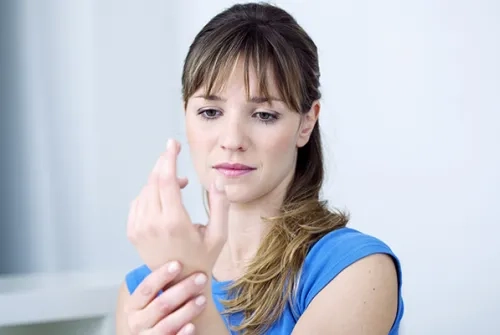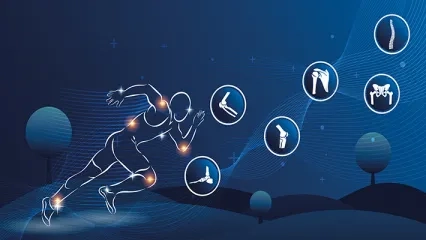Alo Yeditepe
Alo Yeditepe
Vitamin D Deficiency May Be The Cause Of Your Joint Pain
Yeditepe University Hospitals Orthopedics and Traumatology Specialist Prof. Dr. Gökhan Meriç pointed out that vitamin D deficiency causes weakening of the bones and reminded that this condition causes osteomalacia (bone softening) in adults and rickets in children. He underlined that vitamin D is especially helpful in preventing osteoporosis (osteoporosis).
Causes Calcification
Although the symptoms of vitamin D deficiency vary from person to person, joint pain, fatigue, muscle pain and weakness, bone pain, numbness, and low mood are the most typical symptoms. Prof. Dr. Gökhan Meriç stated that there is research that vitamin D is particularly associated with joint pain and osteoarthritis (calcification) and continued his words as follows: "Some studies show that low vitamin D levels may cause increased joint and muscle pain. In 158 patients with advanced cartilage wear in their knees, the degree of cartilage wear was compared with vitamin D levels. In this study of people over 50 years of age with varying degrees of knee pain, many of the patients with vitamin D deficiency had signs of advanced arthritis."
Pointing out that the vitamin D level of patients with arthritis in the knee should be examined, Yeditepe University Hospitals Orthopedics and Traumatology Specialist Prof. Dr. Gökhan Meriç said, "Vitamin D deficiency should also be treated while arthritis is treated."
Do Not Use Vitamin D Unless Recommended by a Doctor
Yeditepe University Hospitals Orthopedics and Traumatology Specialist Prof. Dr. Gökhan Meriç said, "Vegetarians or older adults may also have difficulty getting enough vitamin D, especially in winter. In this case, it would be right to consult a specialist and take the vitamin D supplement recommended by the physician. However, it should not be forgotten that too much vitamin D can cause harm and even poisoning. Vitamin D should not be used unless recommended by a doctor."
A Lifestyle Change is Essential
Prof. Dr. Gökhan Meriç said that patients with arthritis should make lifestyle changes to both support their health and alleviate symptoms: "Regular, gentle exercise and stretching of the affected joint, paying attention to total body weight, losing weight if there is excess weight, avoiding heavy work on the knee and quitting smoking."
This content was prepared by Yeditepe University Hospitals Medical Editorial Board.
”
See Also
- Robotic Hip Replacement Surgery
- Knuckle Cracking Can Be Dangerous When It Becomes a Habit!
- What is Hallux Rigidus (Stiff Big Toe/Toe Arthritis)? Symptoms and Treatment
- What is Hallux Valgus (Bunion)? How is it Treated?
- Meniscus and Cartilage Transplantation Can Be Done at the Same Time
- Ergonomics in Automobiles Prevents Accidents
- Joint Pain and Causes of Joint Pain
- Walking and Returning to Social Life After Knee Replacement Surgery
- Robotic Knee Prosthesis Surgery
- Patients Who Undergo Joint Replacement Surgery Can Stand Up and Walk the Next Day
- Big Toes Can Be A Big Problem!
- What is Synovitis in Joints?
- Hip Impingement Syndrome
- What is the Future of Treating Cartilage Problems?
- Not Only Athletes Suffer from Meniscus Tears!
- Is Cartilage Damage More Common in Those Who Run for Long Periods?
- Beware If Your Shoulder Or Neck Pain Lasts Longer Than Two Days After Swimming!
- Mistakes While Swimming Can Cause Shoulder Pain
- Myths About Fractures
- Have Your Baby Take Their First Steps in Good Health
- Heavy School Bags Can Cause Pain in the Lower Back, Shoulders, and Hands!
- Sports Injuries
- Cartilage Transplantation from Donor Has Been Started to Perform in Turkey
- Working From Home Increases Waist and Neck Problems
- First Cartilage Transplant from a Donor
- Pay Attention to the Pain That Occurs in the Front Part of Your Knees While Playing Sports!
- Young Patient Who Could Not Walk Due to Cartilage Damage Recovered With Cartilage Transplantation
- Knee Arthritis
- Knee Pain
- Crunching in the Kneecap May Be a Sign of Calcification
- Injured Athletes Can Return To Sports With Cartilage Transplant
Alo Yeditepe


